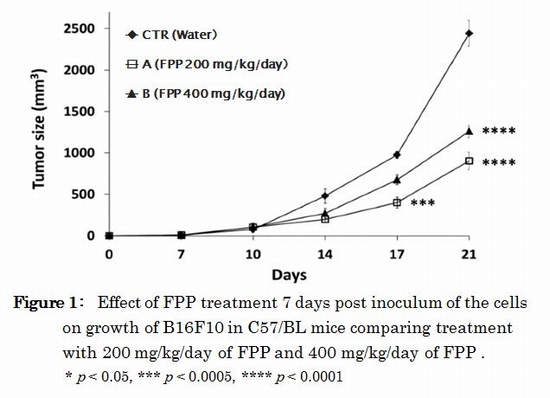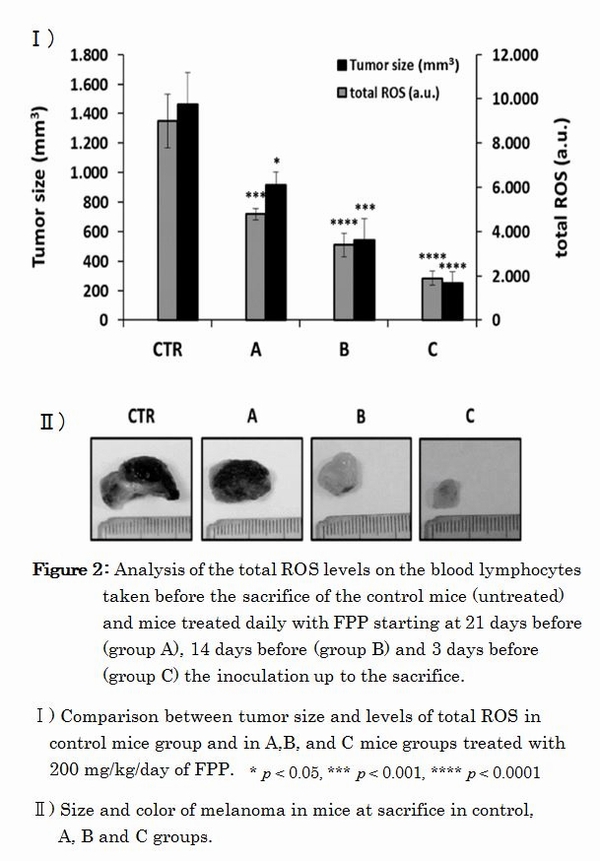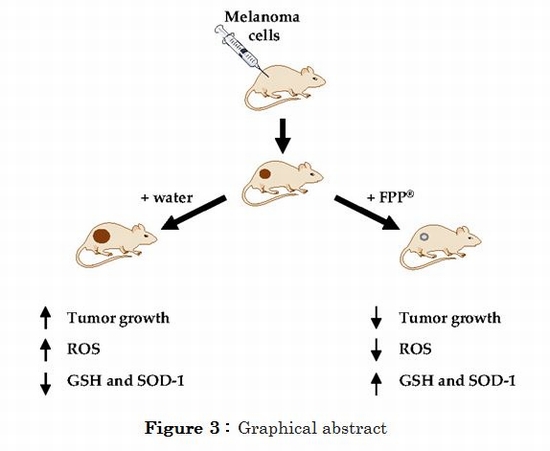Research
Oral Administration of FPP Controls the Growth of a Murine Melanoma through the In Vivo Induction of a Natural Antioxidant Response
FILE2019
Category SkinWhole-BodyAge-Related DiseasesCancerBasic Research
Oral Administration of FPP Controls the Growth of a Murine Melanoma through the In Vivo Induction of a Natural Antioxidant Response
Cancers 11, 118, 2019
Prolonged oxidative stress may play a key role in tumor development. Antioxidant molecules are contained in many foods and seem to have a potential role in future anti-tumor strategies. Among the natural antioxidants the beneficial effect of Fermented Papaya (FPP) is well known.
The aim of this study was to investigate the effects of orally administered FPP in either the prevention or treatment of a murine model of melanoma. The tumor growth was analyzed together with the blood levels of both oxidants (ROS) and anti-oxidants (SOD-1 and GSH).
The results showed that FPP controlled tumor growth, reducing the tumor mass of about three to seven times vs. untreated mice. All in all this set of experiments showed that daily FPP® administration by gavage was induced the most significant effect with the dose of 200 mg/kg/day administered 7 days after the melanoma cells s.c. inoculation(Fig.1). At the time of the sacrifice none of mice treated with FPP had metastases and the subcutaneous tumors were significantly smaller and amelanotic, compared to untreated mice. Moreover, the FPP anti-tumor effect was consistent with the decrease of total ROS levels (Fig.2) and the increase in the blood levels of GSH and SOD-1.
This study shows that a potent anti-oxidant treatment through FPP may contribute to both preventing and inhibiting tumors growth.



